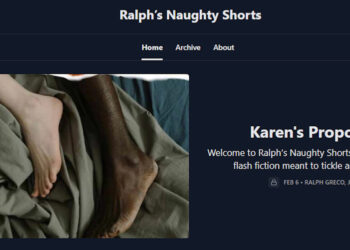TEANECK, NJ – According to the New Jersey Law Journal, a lawsuit filed last week in Bergen County, NJ could prove to be an important test case of the protections established by the court in the case Dendrite International v. Doe.The new case, Gallucci v. New Jersey On-Line LLC, pits Michael Gallucci, once a member of the Teaneck, NJ Township Council, against the newspaper website nj.com.
Gallucci claims the site wrongfully revealed his identity as a comment-poster, a revelation that forced him to resign from his elected office and eventually to leave town altogether.
Gallucci contends that nj.com violated its own privacy policy and failed to adhere to the standards established by the court in Dendrite. According to the Journal, Gallucci is asserting claims for “breach of contract, privacy and fiduciary duty and for intentional and negligent infliction of emotional distress,” and seeks compensatory and punitive damages.
Gallucci also hopes to set a clear precedent that would put other ISPs on notice that they should not repeat the actions taking by nj.com in his case.
The lawsuit stems from what adult webmasters might call an online “pissing match” between Gallucci and Teaneck firefighter William Brennan. Ironically enough, Gallucci’s problem with Brennan was related primarily to his contention that the firefighter, who had been engaged in a protracted legal battle with the township of Teaneck, was overly litigious, and had forced the township to squander money via his legal wrangling.
In one of the cases brought by Brennan against the township, Brennan v. Norton, Brennan won a judgment for $872,500 (later reduced to $382,000) plus over $600,000 in legal fees.
Brennan was a frequent poster on a Teaneck-focused forum hosted by nj.com since its launch in April of 2004, where Brennan would reportedly often boast about his legal victories, poke fun at township officials, and engage in flame wars with his critics.
According to the Journal, Brennan’s very first post, made April 11th, 2004 under the handle “FFBrennan” was “Has anyone asked why Teaneck spends 450 percent more (per capita) on litigation than any other town in the State of NJ?” In another post, Brennan claimed that the city’s courtroom confrontations with Brennan had cost Teaneck over $5 million.
In December 2005, posting under the nickname “AntiBrennan,” Gallucci stepped into his own flame war with Brennan, characterizing the litigious firefighter alternatively as a “litigation terrorist,” a “pathetic psychopath,” and “paranoid-delusional, over-paid-under-worked sicko.”
Brennan responded by terming AntiBrennan as “another anonymous coward” and “hateful beast.”
In January of last year, Brennan decided to do more than fire back in the flame war, however, and subpoenaed nj.com for information on his otherwise anonymous critics, including AntiBrennan.
Brennan’s attorney, Jonathan Nirenberg, told the Journal he had hoped to reveal that a defendant in the case Brennan v Teaneck was behind one or more of the anonymous postings, as demonstrating such would bolster his client’s retaliation claims in the case. (Gallucci and other Teaneck council members were named defendants in Brennan v Teaneck)
According to Nirenberg, nj.com responded quickly to the subpoena, and supplied email addresses of the users in question. Nirenberg said he “struck gold” with the subpoena, because Gallucci’s email addresses included his name. Nirenberg said he tried to uncover the names behind the other email addresses as well, but ran into “more resistance” from the ISPs that served the other addresses.
Two months after the subpoena was issues, Brennan settled with Teaneck for $2.5 million in an agreement that required Brennan to quit his job with the fire department, according to Nirenberg.
In his lawsuit, Gallucci argues that nj.com violated its privacy policy by providing his information. According to the Journal, the nj.com policy states that the site will release user information when “legally required” to do so – Gallucci contends, however, that nj.com did not comply with the safeguards contained in the Dendrite decision.
Under the court’s ruling in Dendrite, a plaintiff who seeks the identity of an anonymous online commentator must first attempt to give notices, through a posting on the message board or site in question, so the target of the subpoena is given the opportunity to contest the subpoena, and oppose disclosure of his or her identity.
In such a circumstance, the plaintiff is also required to specify which anonymously posted statements are actionable, and provide enough evidence in support to establish a prima facie case on the plaintiff’s claim.
Nirenberg told the Journal that given the fact that Gallucci was a defendant in Brennan v Teaneck, he was surprised to see him file suit against nj.com.
“I was surprised by the lawsuit, because Gallucci was a party to the case [Brennan v Teaneck] and through counsel had at least constructive notice of the subpoena,” Nirenberg said. Nirenberg also observed that Gallucci would have been required to disclose his identity to contest the subpoena.
For his part, Gallucci claims that he only became aware that his identity had been disclosed by nj.com on January 5th of this year, when Brennan posted a message identifying Anti-Brennan as Gallucci.
The Journal says that Gallucci posted a message of apology the same day, conceding that it was “stupid for me to participate in an on-line forum with Mr. Brennan” without identifying himself.
The following day, Mayor of Teaneck Jacqueline Kates announced that she would ask for Gallucci’s resignation if he did not quit of his own volition. Gallucci eventually resigned on January 23rd, after facing escalating criticism from the public and from others on the council.
Gallucci claims that he continued to face harassment and mockery, which led him to sell his home below its market value, and move out of Teaneck, altogether.
In addition to the damages sought in his lawsuit, Gallucci is also asking the court for a “clear statement from the court that before an ISP releases a confidential speaker’s identifying information, it must give the speaker notice and an opportunity to intervene,” said Gallucci’s attorney Jennifer Sobel
Sobel is part of a consumer rights advocacy group based in Washington DC called Public Citizen, which submitted an amicus curiae brief in the Dendrite case.
Stephen Latimer, Gallucci’s local counsel, added that “courts in New Jersey are very protective of virtual information,” citing both Dendrite and an Appellate Division decision last month in the case State v. Reid.
The Reid decision found a right to “informational privacy” and reversed a conviction for computer-related theft on the grounds that the conviction was won based on subscriber information obtained from Comcast using an invalid subpoena.
Sobel said the issue in Gallucci v. New Jersey On-Line LLC is “the right to speak anonymously in a digital age and in an age where we all communicate via Web site,” according to the Journal.
Not surprisingly, counsel for the opposing side disagrees.
“We believe that the complaint does not accurately reflect the law and we are confident that our client will prevail,” said Neil Rosenhouse, general counsel for nj.com.












